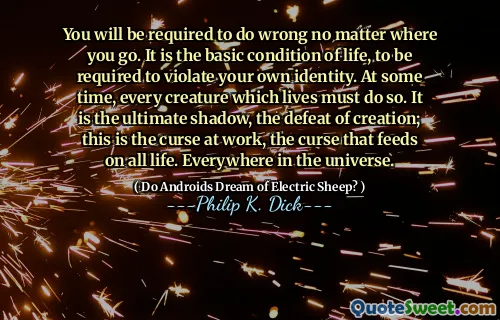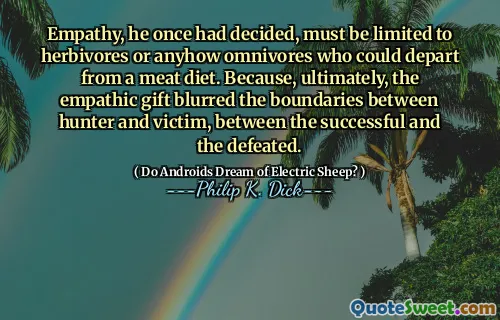
How long that part of the cycle had lasted he did not now know; nothing had happened, generally, so it had been measureless.
In "Do Androids Dream of Electric Sheep?" by Philip K. Dick, the protagonist reflects on a specific phase of his life that seemed indefinite due to the lack of significant events. This sense of duration blends with a feeling of aimlessness, suggesting that time can stretch out when one feels unproductive or stagnant. The absence of impactful experiences makes it difficult for him to gauge how long this period truly was, highlighting the subjective nature of time in our lives.
This introspection reveals deeper existential themes that run throughout the novel, as characters grapple with their identities and the boundaries between humans and androids. The mention of a "measureless" cycle emphasizes the struggle against an unchanging reality, posing questions about purpose and fulfillment. As the characters navigate their world, this reflection becomes a poignant reminder of how personal experiences shape our perception of time and existence.











